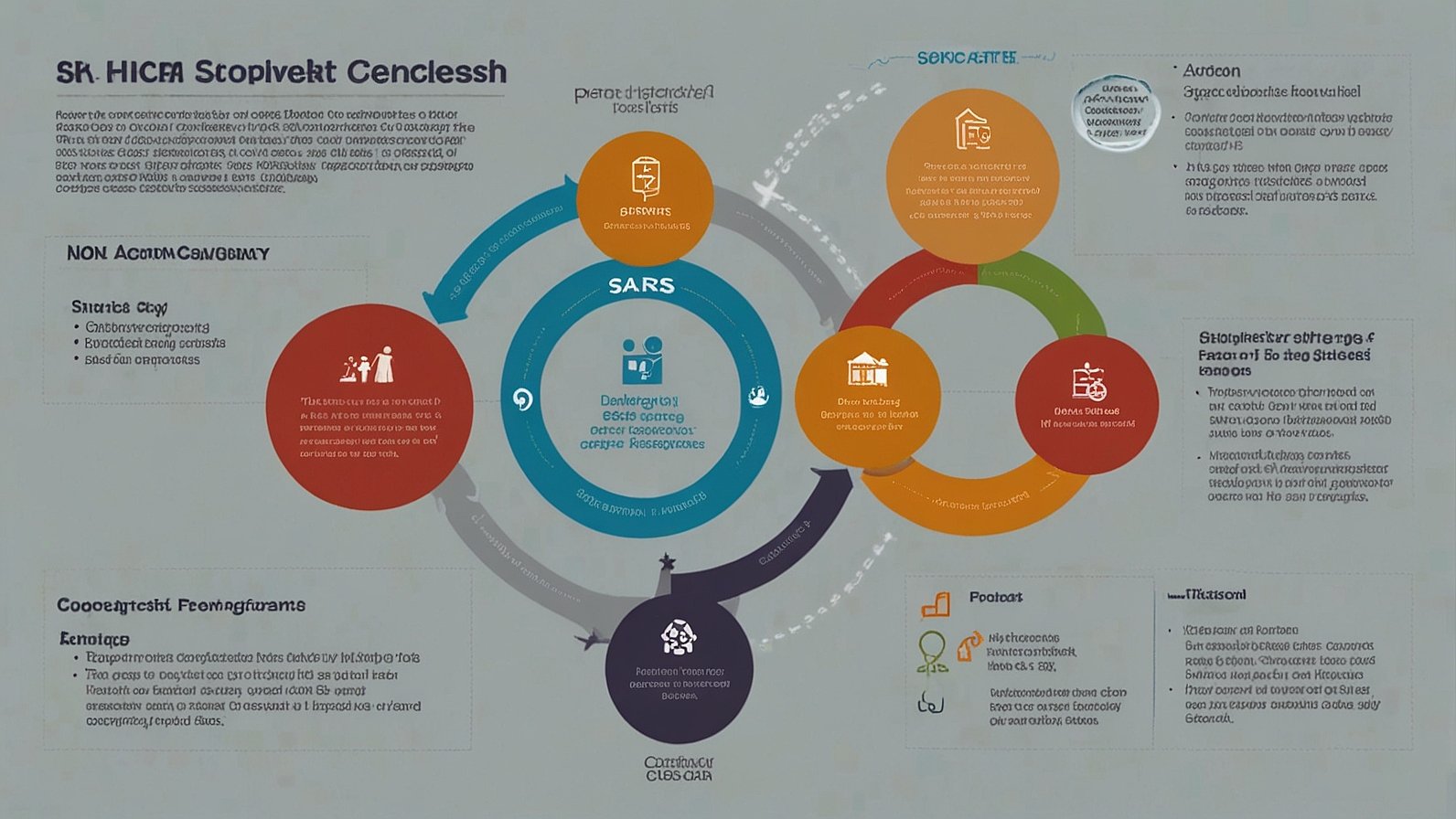Did you know that in South Africa, for every successful non-profit you see creating change, there are countless brilliant ideas that never get off the ground? Often, it’s not for a lack of passion, but a maze of legal paperwork that stands in the way. Many well-intentioned groups operate informally, missing out on crucial funding and operating without legal protection. This is where understanding the npcs register becomes your most powerful tool.
Think of the npcs register not as bureaucratic red tape, but as the official launchpad for your civil-society project. It’s the practical, step-by-step pathway for incorporating a Non-Profit Company (NPC) so your initiative can operate legally, access vital funding, and meet its governance obligations. This guide will walk you through that pathway, turning your vision for change into a structured, credible, and sustainable reality.
Introduction to the NPCs Register: Your Project’s Legal Foundation
Simply put, the npcs register refers to the official process of registering a Non-Profit Company with the Companies and Intellectual Property Commission (CIPC) in South Africa. An NPC is a specific type of legal entity designed for public benefit, distinct from a for-profit business. It’s the preferred structure for organisations aiming to address social, cultural, or environmental needs because it offers legal personality—meaning the organisation itself, not its members, can enter contracts, own property, and be held liable.
Why is this register so critical? Registering transforms your project from a casual group into a recognised entity. It’s the difference between a hobby and an organisation. This legal status is your key to:
- Opening a Bank Account: Try receiving a corporate donation or a grant into a personal account. Banks will require your NPC registration documents.
- Applying for Funding: Most government grants, corporate social investment (CSI) funds, and international donor agencies will only consider applications from registered NPOs/NPCs.
- Limited Liability: This is a huge one. If your registered NPC encounters financial or legal trouble, the members’ personal assets are generally protected. An unregistered group does not have this protection.
- Building Trust and Credibility: A registration number signals to the community, partners, and donors that you are serious, transparent, and committed to good governance.
How the NPC Registration Process Works: A Step-by-Step Pathway
The journey to getting on the npcs register is methodical but entirely manageable. Let’s break it down into clear stages.
Step 1: Laying the Groundwork (Pre-Registration)
Before you even look at the CIPC website, you need to have your foundational documents in order. This is the “homework” phase that ensures a smooth application.
- Choose a Unique Name: Your NPC’s name must be unique and not already in use on the CIPC database. Have 2-3 backup options ready. The name must end with “NPC” to indicate its status.
- Draft Your Memorandum of Incorporation (MOI): This is the NPC’s constitution—its most important governing document. It must include:
- The company’s main and secondary objectives (its purpose).
- A clause stating that it is incorporated for a public benefit purpose and that its income and property are not distributable to its members.
- Rules for governance, meetings, and appointing directors.
- Appoint Your Founding Directors: You need at least three founding directors. They must be fit and proper persons, and at least one must be resident in South Africa.
Step 2: The Registration Process with CIPC
This is the core of engaging with the npcs register. The process is completed online via the CIPC website.
- Create a Customer Account: You’ll need to register as a customer on the CIPC e-services portal.
- Reserve Your Company Name: Submit your chosen name(s) for approval. This costs a small fee and can take a few days.
- File Your Registration Documents: Once your name is reserved, you can file the registration application. You will need:
- The approved name reservation notice.
- Your completed and signed MOI.
- Details of all founding directors (ID numbers, addresses, etc.).
- The physical address of your registered office.
- Pay the Fees: The fee for registering an NPC is significantly lower than for a for-profit company.
Upon successful submission and payment, CIPC will review your application. If everything is in order, you will receive your Certificate of Incorporation—the birth certificate of your NPC! This certificate contains your unique company registration number.
Step 3: Post-Registration Must-Dos
Congratulations, you’re registered! But the work isn’t over. To be fully operational, you must:
- Register with SARS for Tax Exemption: This is a crucial step. While your NPC is automatically a taxpayer, you need to apply for approval as a Public Benefit Organisation (PBO) to obtain tax exemptions (e.g., on donations received). This is a separate process with the South African Revenue Service.
- Open a Corporate Bank Account: Take your Certificate of Incorporation, MOI, and director details to a bank to open an account in the NPC’s name.
- Register as a Non-Profit Organisation (NPO): While optional, it’s highly recommended to also register with the Department of Social Development’s NPO Directorate. This adds an extra layer of credibility and is required for certain government grants.
Real-World Applications: Why This Matters for Your Project
Let’s move from theory to practice. How does being on the official npcs register translate to real-world success?
- Case Study: The Community Garden Project. A group starts a vegetable garden to feed vulnerable families. Unregistered, they rely on small cash donations. Once registered as an NPC, they can:
- Apply for and win a grant from a supermarket chain’s CSI fund to buy irrigation systems.
- Issue Section 18A tax certificates to donors, encouraging larger contributions.
- Lease land formally under the NPC’s name, securing their operation long-term.
- The Arts and Culture Collective. A group of artists wants to run workshops for youth. As an NPC, they can:
- Partner with the local municipality on officially tendered projects.
- Receive art supplies as a donation from a company, which the company can then write off as a tax-deductible expense.
- Manage their finances transparently, building trust with parents and the community.
The register is the bridge that connects grassroots passion with the structured resources of the formal economy.
Maintaining Compliance: Staying on the Right Side of the Law
Being registered comes with responsibilities. Good governance is not a one-time event but an ongoing practice.
- Annual Returns: You must file annual returns with CIPC, even if your NPC is not active. Failure to do so can result in penalties and eventual deregistration.
- Financial Records: Keep accurate and up-to-date financial records. This is non-negotiable.
- Board Meetings: Hold regular meetings and keep minutes. Your MOI will outline the required frequency.
- Audits/Independent Reviews: Depending on your level of funding, you may be required to have your financial statements audited or independently reviewed annually.
Think of compliance like servicing a car—it keeps your organisation running smoothly and prevents breakdowns that could end your journey prematurely.
Key Takeaways and Your Next Steps
Embarking on the npcs register pathway is the single most important strategic decision you can make for your social project. It formalizes your mission, protects your team, and unlocks the resources you need to maximize your impact.
Your key points to remember:
- The npcs register is your gateway to legality, funding, and credibility.
- The process involves preparation (name, MOI), CIPC online registration, and crucial post-registration steps with SARS and your bank.
- Ongoing compliance through annual returns and good governance is essential for sustainability.
Ready to take the leap? Your first step is to gather your founding team and start drafting that Memorandum of Incorporation. What positive change will you build first?
You May Also Read: Tractor Supply Sales Associate Job Description: Your Frontline Role in Rural Retail
FAQs
What is the difference between an NPC and an NPO?
An NPC (Non-Profit Company) is registered with CIPC under the Companies Act. An NPO (Non-Profit Organisation) is registered with the Department of Social Development under the NPO Act. You can, and often should, register for both. The NPC provides the legal structure, while the NPO registration adds an extra layer of credibility for certain funders.
How long does the entire NPC registration process take?
If your documents are prepared correctly, the CIPC online registration can be approved within a few days to a few weeks. The subsequent steps, like SARS PBO registration, can take several months, so it’s best to start early.
Can one person register an NPC?
No. The Companies Act requires a minimum of three incorporators and three directors for a Non-Profit Company.
How much does it cost to register an NPC?
The CIPC fees for name reservation and company registration are relatively low (a few hundred Rand). However, you may incur costs if you use a lawyer to help draft your MOI, though many organisations use template MOIs designed for NPCs.
Can an NPC make a profit?
Yes, an NPC can generate a surplus from its activities. The key difference from a for-profit company is that this surplus cannot be distributed to members or directors. It must be reinvested back into the organisation to further its non-profit objectives.
What happens if we don’t file our annual returns?
CIPC will first impose penalties for late filing. If you continue to fail to file, your NPC will be de-registered, meaning it will lose its legal status and all the benefits that come with it.
Do we need a physical office to register?
You need a registered physical address (which can be a director’s address or a rented office) for official communication, but you do not need a dedicated operational office space to complete the registration.










